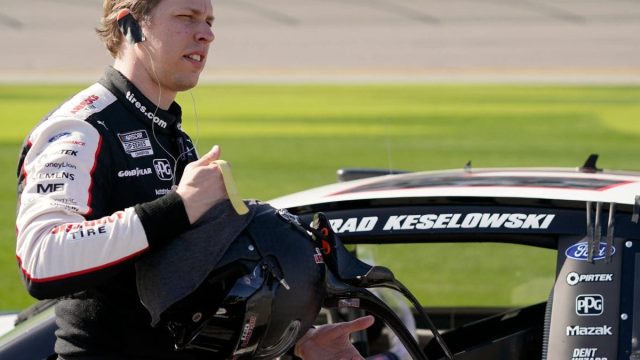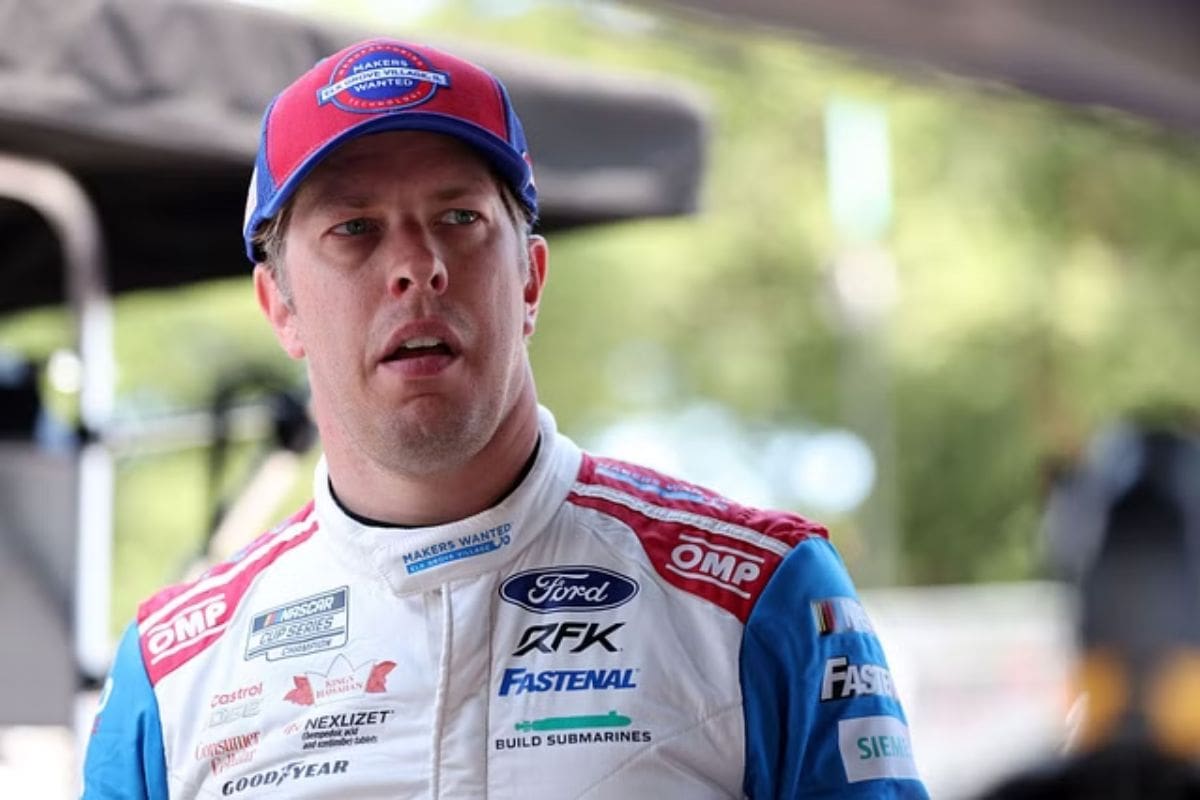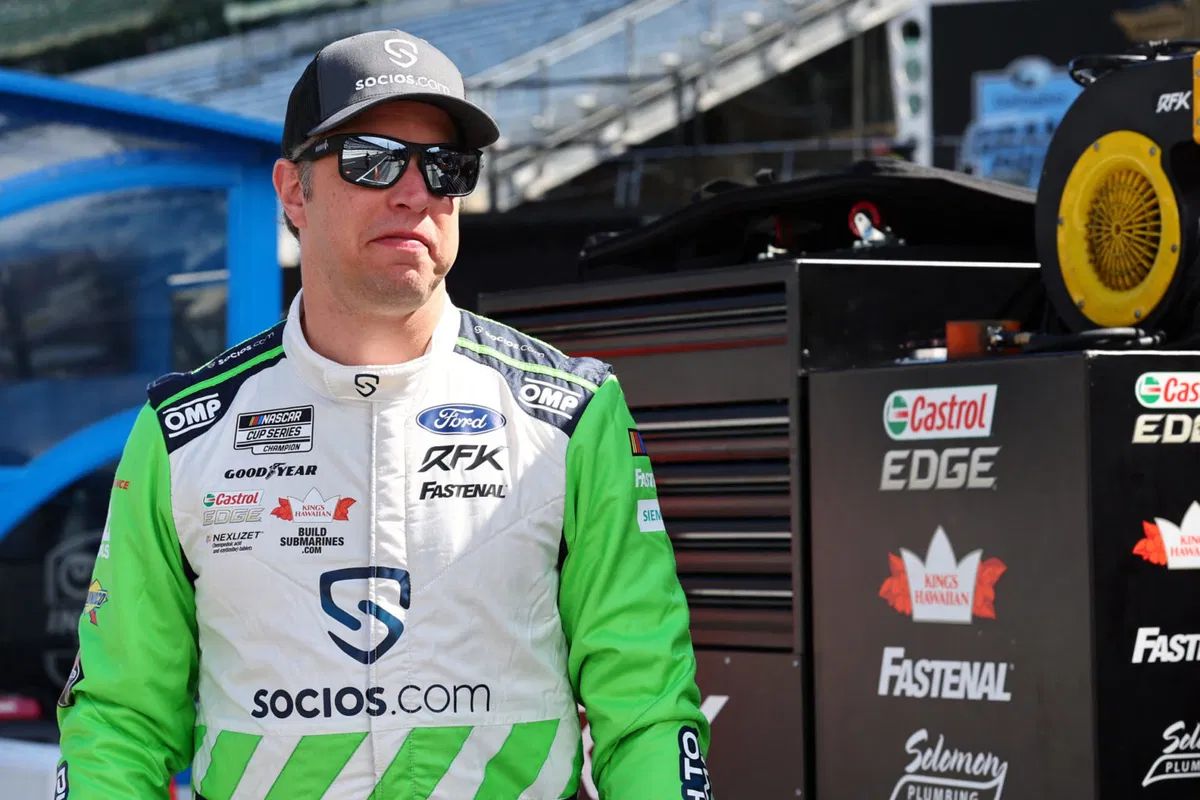Brad Keselowski Responds to Austin Dillon: Brad Keselowski‘s measured response to the penalties levied against Austin Dillon following the Richmond race highlights substantial tensions within NASCAR’s regulatory landscape. His emphasis on the necessity of accountability raises critical questions about the balance between fostering competitive spirit and maintaining order in the sport. As drivers navigate increasingly complex dynamics, Keselowski’s insights prompt us to reflect on the potential repercussions of a regulatory framework that could either support or undermine the integrity of racing. What implications might this have for the future of NASCAR amidst evolving challenges and the quest for safety?
Key Highlights
- Brad Keselowski acknowledges the complexity of NASCAR’s regulations and the need for order to prevent a chaotic racing environment.
- He emphasizes accountability and the importance of maintaining clear boundaries within the racing community.
- Keselowski views NASCAR’s penalties on Austin Dillon as a necessary deterrent against reckless driving behaviors.
- He highlights the ongoing evolution of NASCAR, where increased competitive spirit can lead to heightened tensions among drivers.
- The long-term effectiveness of these penalties remains uncertain, potentially impacting driver conduct and team dynamics in the future.
Brad Keselowski’s Reaction
Brad Keselowski’s reaction to NASCAR’s recent penalties reflects a deep comprehension of the complexities within the sport and its regulatory framework. By addressing the penalties imposed on Austin Dillon, Keselowski acknowledges the necessity of maintaining order within NASCAR’s competitive landscape. His assertion that the sport could devolve into a “Wild West” scenario without clear boundaries highlights the importance of accountability in racing.
“It’s clear that we’ll just keep moving the line, whatever that line is, If we don’t know where the line is, we’ll just keep pushing to more and more extremes. That’s not limited to Austin. That’s just the entire industry. I have some sympathies for all the parties involved, whether it be NASCAR or Austin, and certainly the guys that got wrecked last week but the way the system is set up I kind of understand it.”-(brad)
Keselowski’s insights probe into the broader implications of the penalties, emphasizing the ongoing challenge of defining the limits of acceptable conduct in racing. This perspective reveals his awareness of the precarious balance that NASCAR must uphold between competitive spirit and regulatory oversight.
Keselowski expresses empathy for all parties involved—NASCAR, Austin Dillon, and the drivers affected by the collisions—demonstrating his recognition of the human elements at play. His detailed understanding of the situation suggests that while penalties may seem harsh, they are often a necessary mechanism for preserving the integrity of the sport.
Keselowski’s response serves as a clarion call for introspection within the racing community, urging stakeholders to reflect on their roles in preserving the sport’s foundational principles. His remarks not only resonate with fellow drivers but also challenge NASCAR to continue refining its regulatory framework for the future.
NASCAR’s Decision and Impact
Frequently, decisions made by NASCAR resonate beyond immediate race outcomes, shaping the entire competitive landscape of the sport. The recent penalties imposed on Austin Dillon serve as a significant example of this phenomenon. By declaring that Dillon crossed a clear line, NASCAR’s senior vice president of competition, Elton Sawyer, emphasized the inherent tensions within the sport’s regulations, where gray areas often blur the boundaries of acceptable conduct. This ambiguity fuels both competitive strategy and the potential for conflict on the track.
The ramifications of Dillon’s penalty extend far beyond his individual situation; they function as a deterrent to other drivers, signaling that reckless behavior will not be tolerated. Brad Keselowski noted that such decisions impact not only the Cup Series but also the broader ecosystem of NASCAR, creating a wave effect that influences driver conduct at all levels.
“So that has an effect that transcends not just the Cup Series but on down and it’s something that I think that NASCAR felt a lot of pressure to react on and they did, I don’t know if I have an idea whether they made the right move or wrong move, I guess time will tell.”-(brad)
The strain on NASCAR to respond decisively reflects the league’s commitment to maintaining a balance between the sport’s aggressive nature and the need for safety and respect among competitors. As Keselowski wisely pointed out, the long-term effectiveness of NASCAR’s decision remains uncertain. The true measure of its impact will be revealed over time, as drivers adjust their strategies and attitudes in response to this enforcement.
NASCAR’s actions will play an essential role in shaping both the competitive spirit and the culture within the sport, reinforcing the understanding that there are consequences for crossing established boundaries.
Keselowski’s Perspective on Evolution
The recent penalties imposed by NASCAR have prompted a broader examination of the sport’s evolving dynamics, particularly from the perspective of seasoned drivers like Keselowski. Amidst the heightened tensions, especially from drivers like Joey Logano, Keselowski’s insights suggest a philosophical understanding of competitive racing’s inherent nature. He states that the conflicts observed, such as those involving Austin Dillon, are part of a broader, ongoing evolution within NASCAR.
Keselowski articulates that this evolution is not merely reactive but a gradual progression shaped by diverse factors.
“But maybe it’s just part of a natural evolution that happens slowly over time, But with now NASCAR interjecting, I think it’s fair to say that this would just evolve to another step. I don’t know what that would be, but it will always just keep evolving until something gets stopped.”-(brad)
Keselowski concludes that, like any sport, NASCAR will continue to evolve until a point of equilibrium is reached—or until changes are mandated. His perspective highlights a critical understanding of the sport’s cyclical nature, where conflict and resolution drive its ongoing narrative.
As NASCAR navigates this evolution, the insights of experienced drivers like Keselowski will be invaluable in shaping its future.
Future Implications and Uncertainty
As NASCAR grapples with the implications of its recent penalties, the uncertainty surrounding future races looms large. The penalties imposed on Austin Dillon have sparked discussions on whether such actions will deter other drivers from adopting likewise aggressive tactics. Brad Keselowski’s insights emphasize the transient nature of solutions in the competitive landscape of NASCAR. He notes that while the organization aims to curb reckless behaviors, the reality is that new challenges will inevitably arise.
“I don’t think there’s a way to have permanent solutions for everything that happens in life and sports, I don’t know what the next thing will be. I think everybody a couple of years ago got a good kick out of Ross’ move and that was certainly an evolution of the sport, right? NASCAR made a point to make that kind of a one and done and I think they’re trying really hard to do that here. Something else I’m sure will pop up, as it always does.”-(brad)
Each race becomes a test of not just speed, but of strategy and adaptability. As the sport evolves, so too must the approaches of its participants, leaving the future of NASCAR shrouded in both potential and uncertainty.
News in Brief: Brad Keselowski Responds to Austin Dillon
Keselowski’s remarks highlight the ongoing tension between competitiveness and regulatory measures within NASCAR. The penalties imposed on Dillon serve as a critical reminder of the necessity for structured governance in a sport characterized by its unpredictable nature.
As the landscape of racing evolves, the balance between building an intense competitive spirit and ensuring driver safety remains paramount. The implications of these dynamics will shape the future of NASCAR, necessitating continued dialogue and adaptation among all stakeholders involved.
ALSO READ: Brad Keselowski on NASCAR’s Latest Innovation: “This Is a Good Step Forward”



